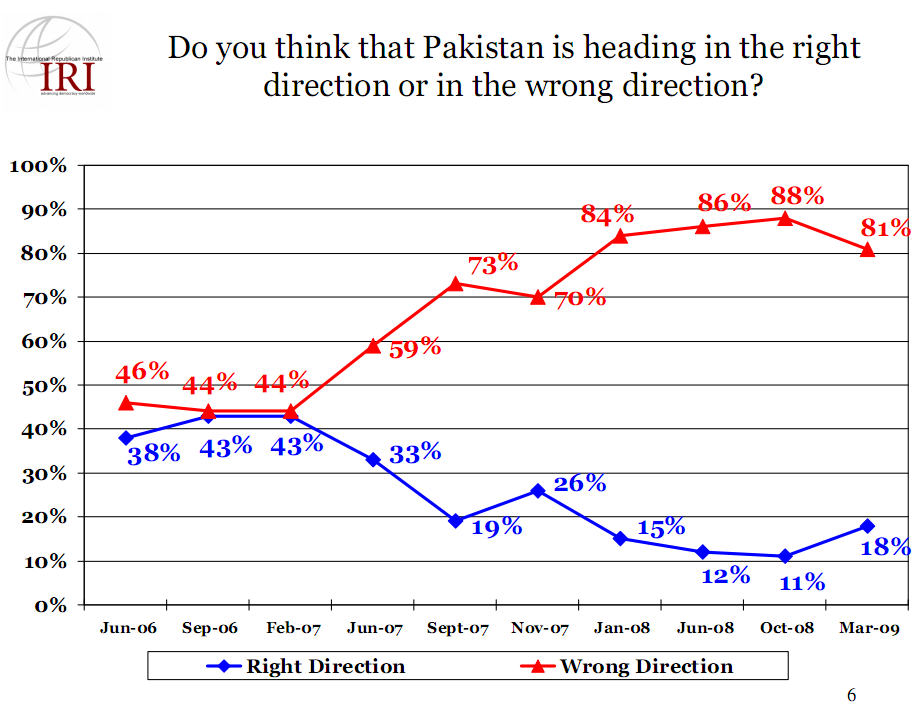Pakistan, the observant among you will have noticed, has been having a tough time the past few years. This graph sums it up for me (March 2009, Pakistan public opinion survey):
There’s one hopeful sign, though – a new generation that is beginning to get its act together to agitate (often online) for change. So what’s the government done? Yes, you’ve guessed it: announced a crackdown.
An official announcement by the interior ministry said that the government was launching a campaign against circulation of what it called ill-motivated and concocted stories through emails and text messages against civilian leadership and security forces.
The announcement does not elaborate what is meant by ill-motivated e-messages, but it is believed that the ‘civilian leadership’ meant President Asif Ali Zardari, Prime Minister Yusuf Raza Gilani, Interior Minister Rehman Malik and other politicians.
A senior official of the ministry said: ‘Sending indecent message is a crime under the Cyber Crime Act and liable to punishment.’
Isn’t that just fantastic? Pakistan’s government can’t get deliver universal primary education or reliable electricity to major cities. It’s fighting an insurgency against the Taliban with little clue how to win it. But yet it’s making it a priority to crack down on seditious text messaging.
And one other point – someone should ask where the monitoring equipment has come from. Specifically: was it supplied by the American or British government to help Pakistan fight the War on Terror?





